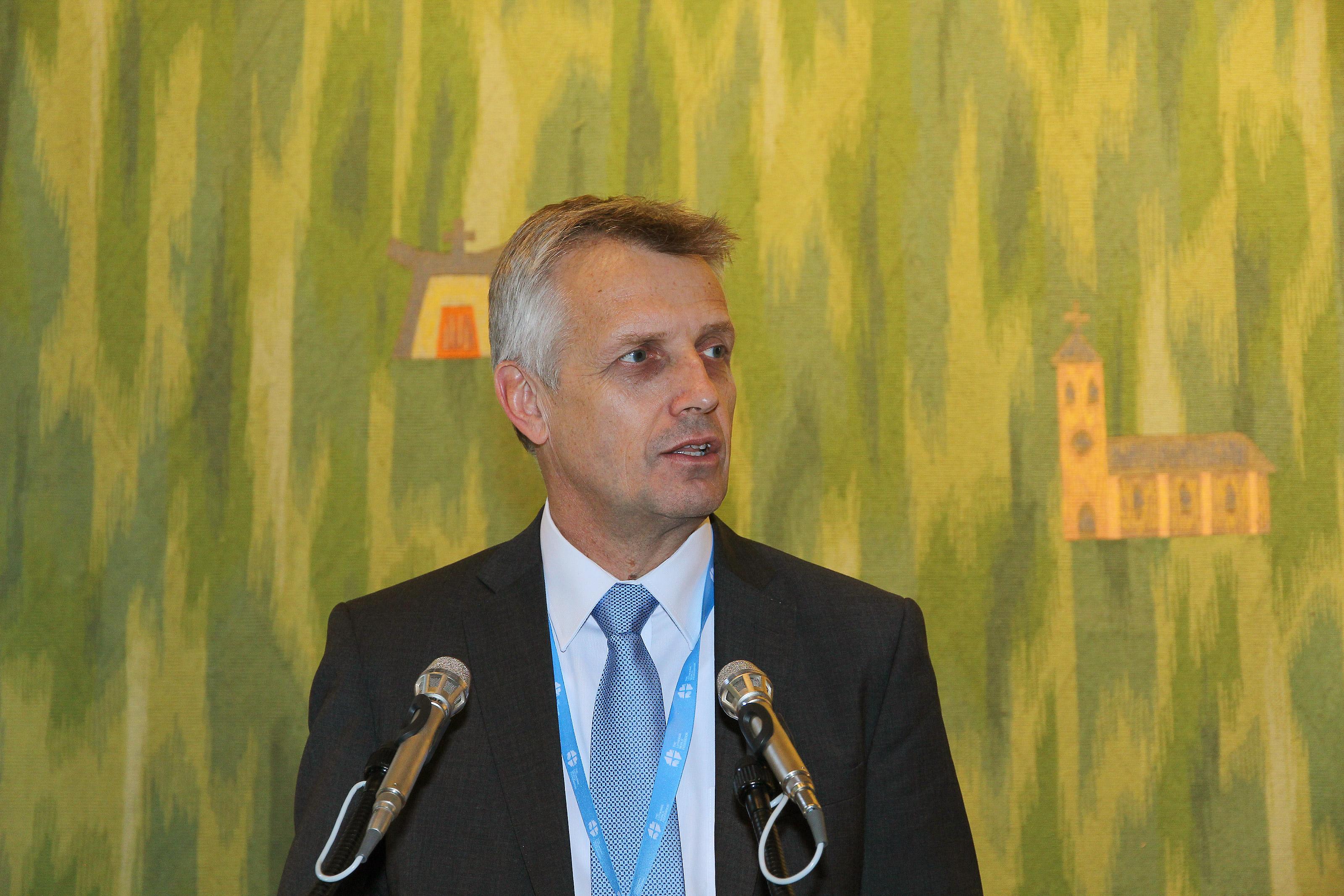Promoting Neighborly Relations in Multireligious Societies

LWF General Secretary Rev. Martin Junge reports to the Council 2013. © LWF/M. Haas
General Secretary’s Report to Council Invites Discussion on a Sustainable LWF
(LWI) – The General Secretary’s report to the 2013 Council meeting of The Lutheran World Federation (LWF) offered reflections on his visits to LWF member churches, interactions with ecumenical partners, an update of the work carried out by the respective departments in the LWF Communion Office, and future perspectives for the life and work of the LWF.
Referring to his visit to Tanzania, LWF General Secretary Rev. Martin Junge noted that there are churches living in contexts that undermine peaceful neighborhood relations between religious communities. Congregations of the Evangelical Lutheran Church in Tanzania and buildings had become direct targets of violent riots, for which the root cause is “abject poverty and absence of relevant and viable perspectives, particularly for young people. It is the alienation generated by this situation, together with targeted instrumentalization, which ends up undermining healthy and peaceful neighborhood relationships between (religious) communities.”
In Asia, Junge noted, the vitality of churches’ engagement in mission is evident, but the issue of co-existence with other religions is also a concern.
Junge’s report stated that tensions and conflicts that are often perceived and communicated as religious are related to issues that are normally far more complex. The LWF governing body was invited to deeper discussions on religious freedom during its meeting, 13-18 June.
The general secretary’s visits to churches and interactions with LWF’s bilateral dialogue partners are “a reflection of both the strong ecumenical vocation of the LWF, and the vitality of its engagements at various levels,” his report stated. At the church leadership meeting in Africa, the changing religious landscape was discussed. Referring to the planned bilateral dialogue with the Pentecostals, Junge underlined that it was important “to include the perspective of reception during the inception of ecumenical dialogues and a deliberate attempt to secure strong links between the local and global dimensions.”
But there are also encouraging stories about churches’ involvement in bridge building even amidst tensions, as well as the Department for World Service work in upholding the rights and dignity of refugees and internally displaced people regardless of their faith. The interreligious cooperation with the United Nations High Commissioner’s Dialogue on Faith and Protection, is also a positive development for the religious landscape.
The report stated gratitude to the communion’s member churches for support and commitment to LWF’s work with an estimated 1.5 million refugees and displaced persons across the world.
If Youth Do Not Have a Future nor Does Our Common Household
On the global youth unemployment crisis—with over 75 million youth worldwide looking for work—the general secretary’s report underlined the member churches’ role in addressing this dangerous development, stating, “If youth do not have a future, our common household doesn’t have one either.”
The general secretary’s report also highlighted the growing gap of resources, capacities and relationships among churches, which results in the weakening of “capacity and ability to offer holistic ministry in their respective societies,” with several churches becoming increasingly isolated from both accompaniment and support.
This Council meeting is significant for the Communion Office as it anticipates decision on the LWF Gender Justice Policy. “We begin to look ahead already and discern ways in which this policy will come into life in the LWF, thus transforming relationships between genders with a view on justice,” Junge’s report noted.
The report also stated the need to begin envisioning today a sustainable LWF beyond the 2017 Reformation anniversary. “How will such a sustainable LWF look like for those after us who will celebrate the 500 years of the Augsburg Confession in the year 2030?”
Other issues that the general secretary cited for further deliberation by the Council included how the pedagogy of the communion can mutually support churches as they journey together; developing methodologies to promote wider participation in LWF’s programs and processes; the role and functions of regional expressions of communion; developing future generations of leadership in the churches; and perspectives and strategies for financial sustainability.

